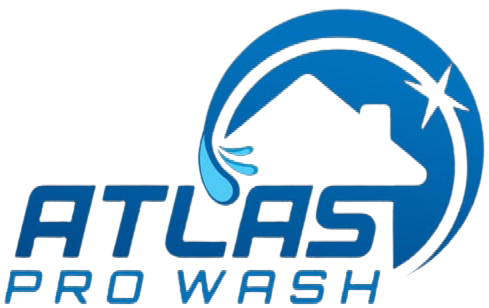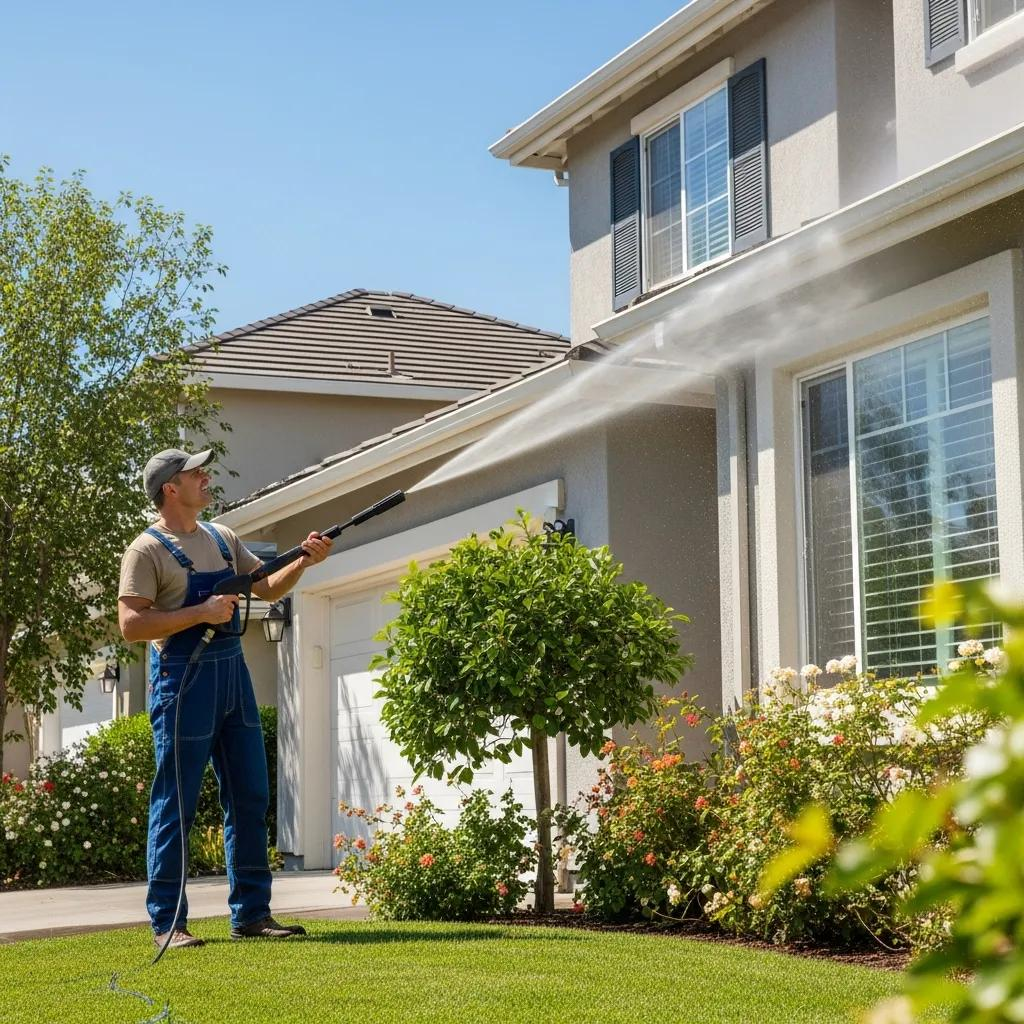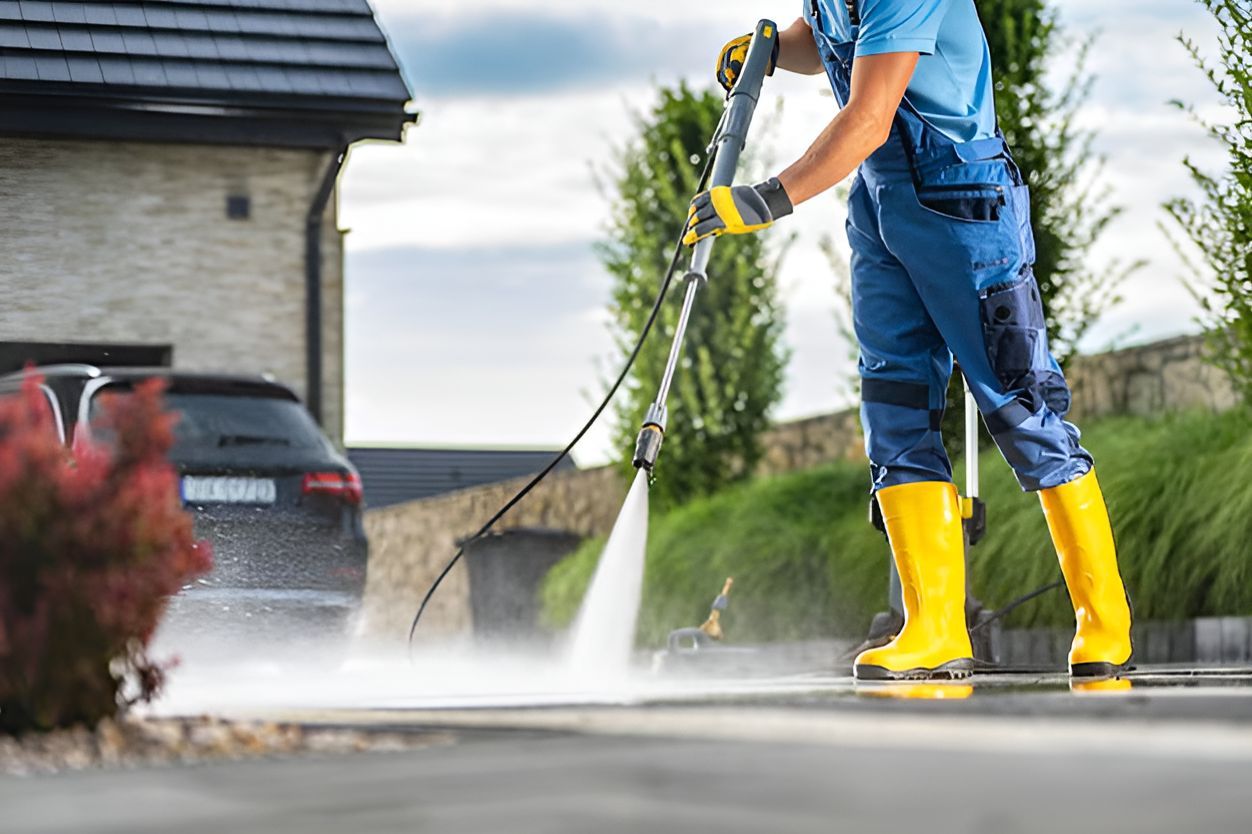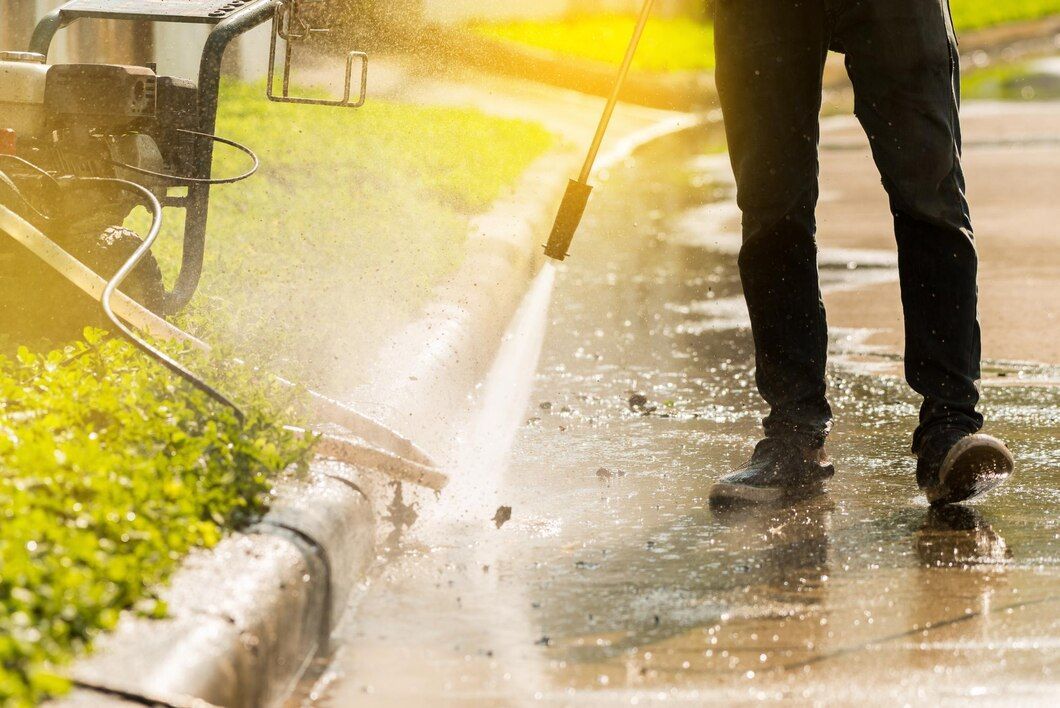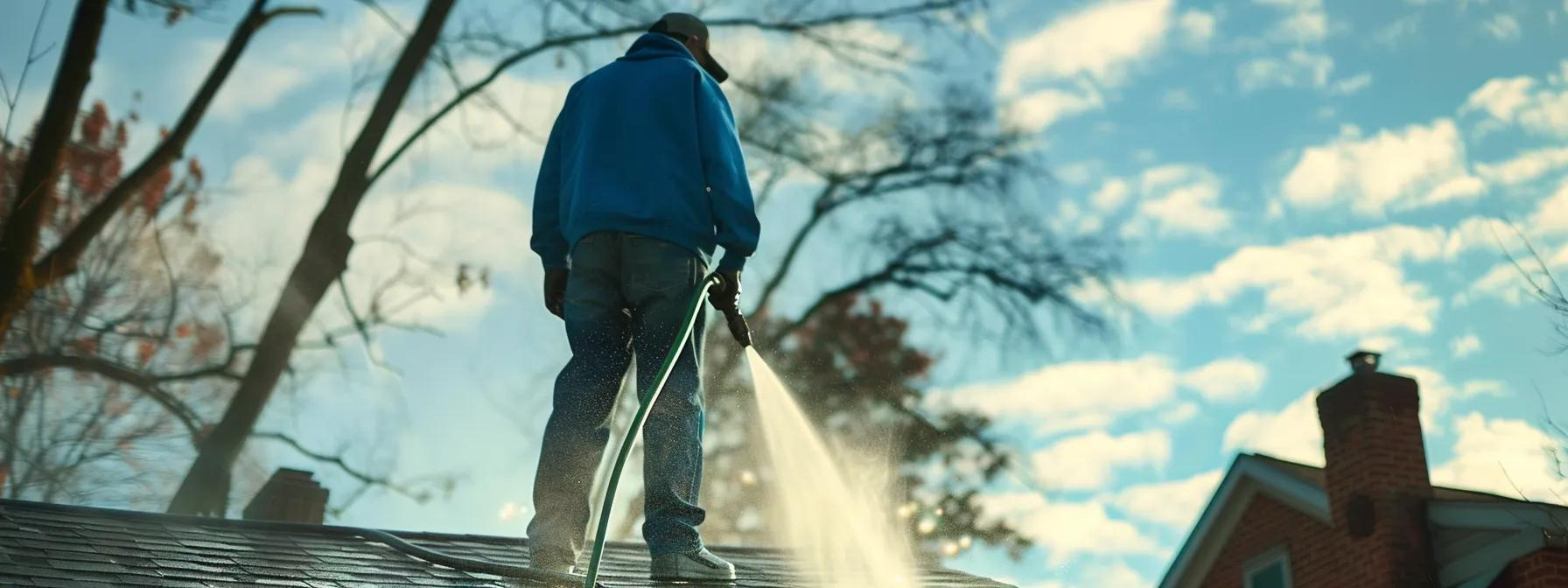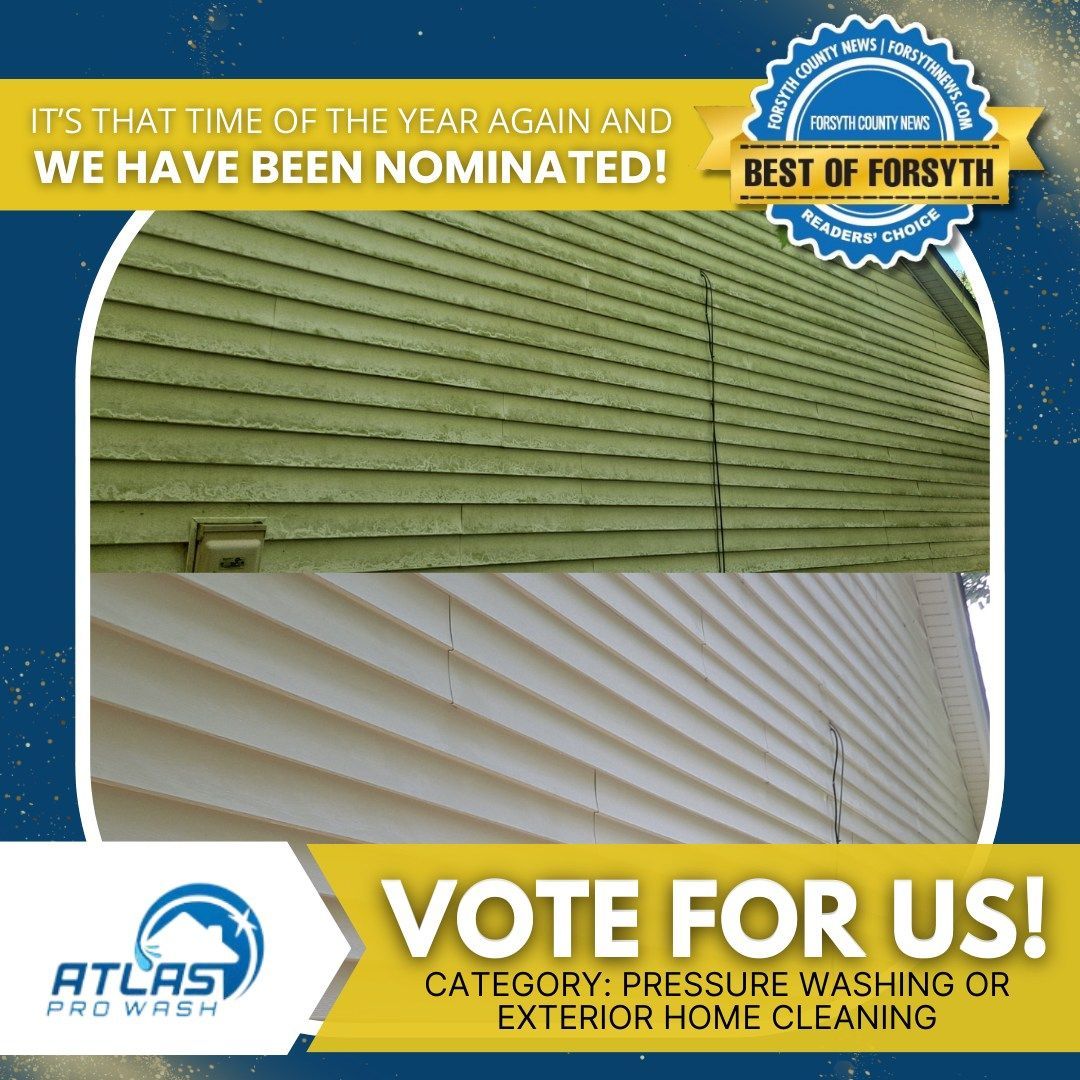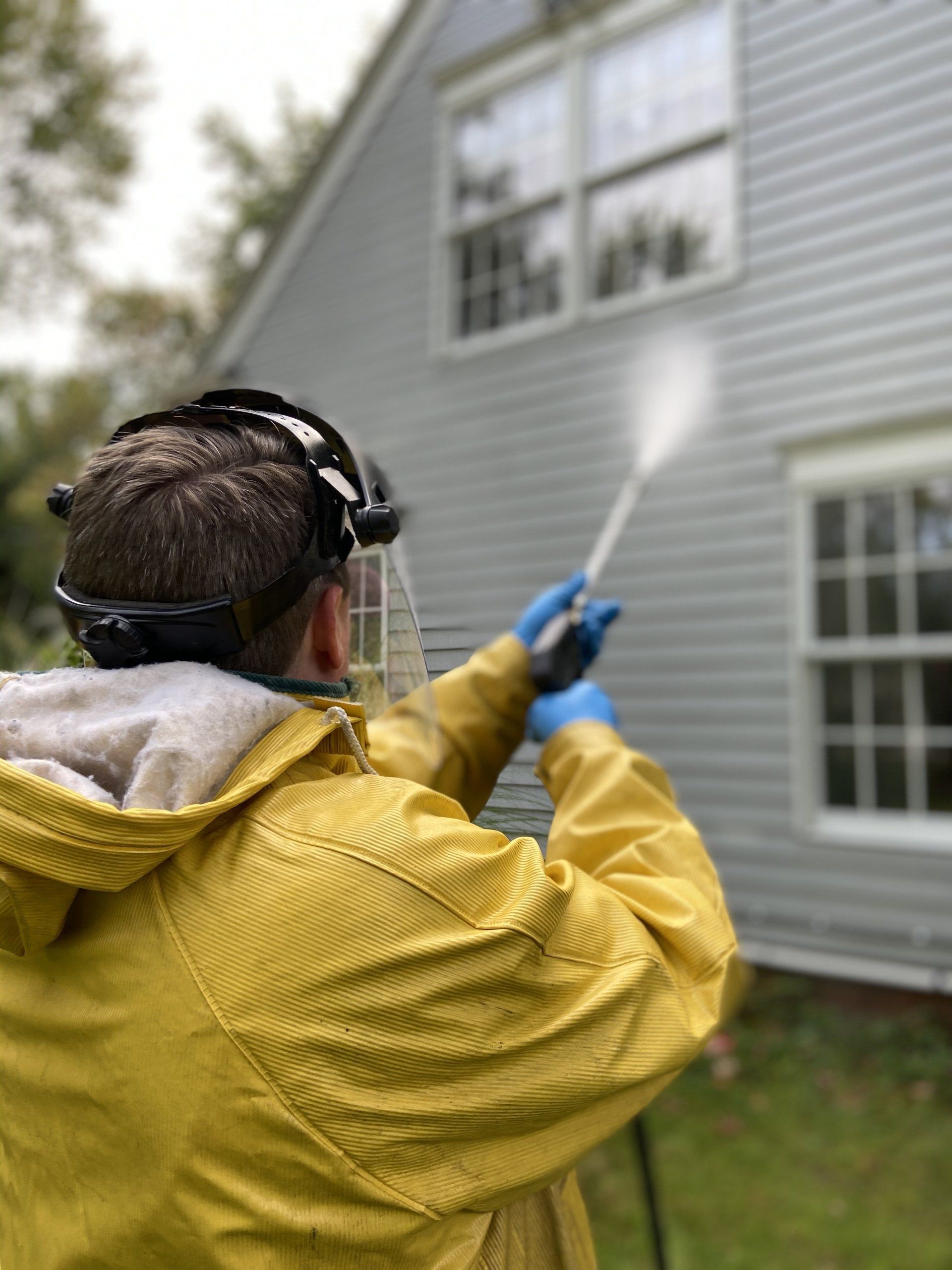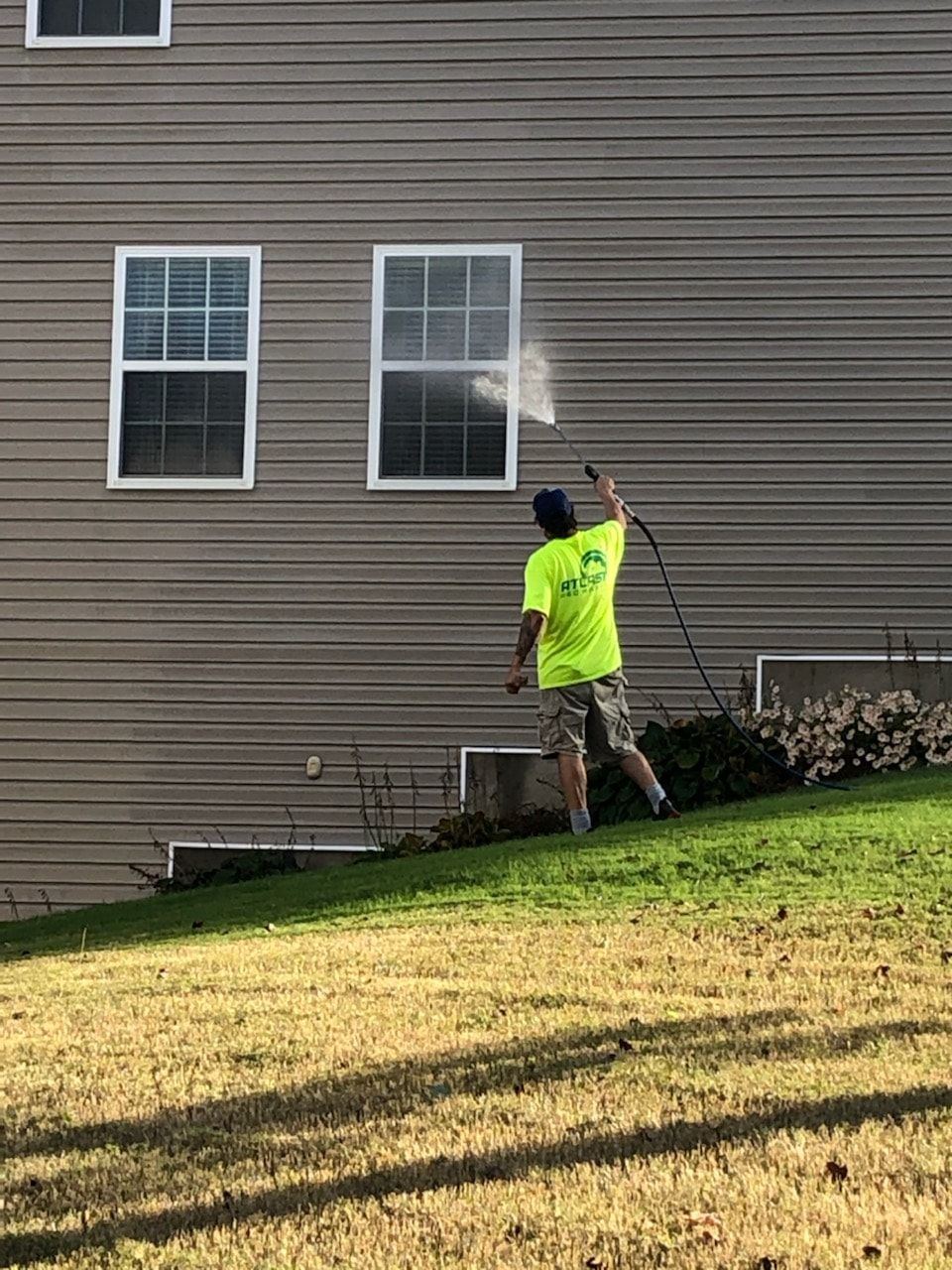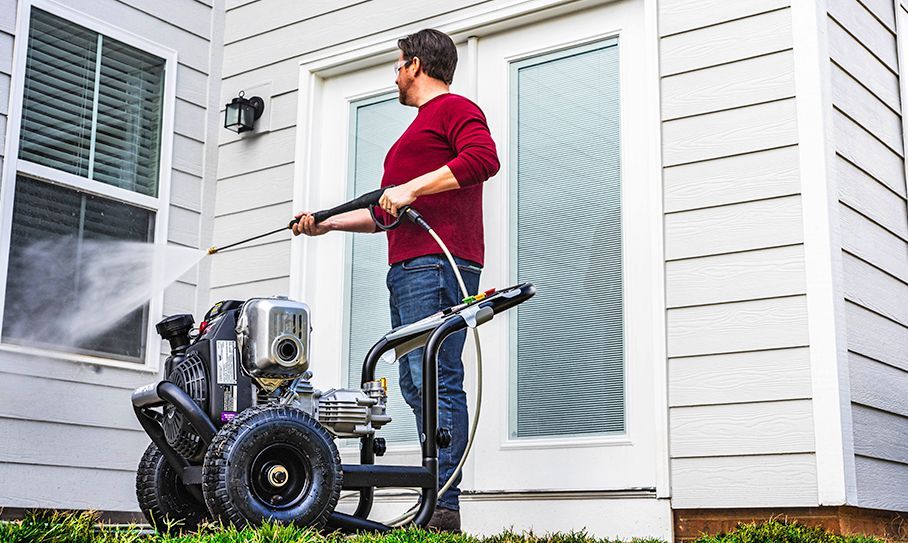Learn Why Certain Surfaces Should Never Be Pressure Washed
That powerful blast of water from a pressure washer can do more harm than good, stripping away protective layers and damaging delicate materials in a flash.
Knowing which exterior surfaces are a no-go for high-pressure cleaning is key to protecting your investment and avoiding costly repairs.
This guide breaks down the areas you should steer clear of with a pressure washer, dives into the common damage risks, explains how soft washing keeps delicate materials safe, and tells you when it’s time to bring in the exterior cleaning pros, especially for pressure washing Cumming GA properties.
By the end, you’ll be a pro at knowing which surfaces to avoid pressure washing and how to pick the safest cleaning method.
Learn Why Certain Surfaces Should Never Be Pressure Washed
- High-pressure water can strip coatings, crack materials, and force leaks into your home
- Never pressure wash asphalt shingles; dislodged granules shorten roof life and lead to leaks
- Avoid blasting vinyl, fiber-cement, and wood; it drives water behind seams and strips finishes
- Windows, seals, frames, and screens can crack or fail under pressure, creating costly interior damage
- For pressure washing Cumming GA properties, use soft washing (<500 PSI) or call trained pros
Which Surfaces Should You Skip with a Pressure Washer to Keep Them Safe?
Never aim high-pressure water at delicate exterior materials.
That intense force can strip, crack, or even push water into surfaces, leading to bigger structural problems down the line. Here are the main types of surfaces that need a much gentler touch:
Roofing Materials
Asphalt shingles absolutely should not be pressure washed.
Those powerful jets can easily dislodge the granules that protect them and compromise the waterproof underlayment. Once those granules are gone, the sun’s rays can degrade the shingles faster, leading to leaks.
Vinyl and Fiber Cement Siding
When you pressure wash vinyl siding, the intense force can actually flex the panels, forcing water behind the seams and chipping away at the surface coatings on fiber cement.
You might start seeing cracks appear along nail lines and corners, creating perfect little hiding spots for mold and rot.
Wood Decks, Fences, and Siding
Pressure washing can gouge and splinter wood fibers, lift the grain, and strip away protective stains or paints. Too much water saturation can cause swelling, warping, and encourage microbial growth in your deck joists and fence posts.
Windows and Glass Surfaces
Glass panes are susceptible to cracking under direct, high-pressure streams, and the seals around windows often fail, allowing water to sneak into your walls.
Window frames and screens can tear or swell, leading to those annoying foggy double-panes and expensive replacements.
What Are the Common Damage Risks When Pressure Washing Delicate Surfaces?
Using too much pressure exposes materials to three main dangers: surface erosion, water intrusion, and electrical hazards. Each one comes with its own set of serious consequences:
Granule Loss and Roof Leaks
High-velocity water jets can strip away the protective granules from asphalt shingles, exposing the underlying mat and reducing their resistance to UV rays. This granule loss speeds up the aging process of your roof and allows water to seep underneath the shingles, leading to leaks and damage inside your home.
Mold, Cracks, and Paint Stripping
On siding and wood surfaces, pressure washing can wear away paint layers and sealants, creating tiny cracks that become breeding grounds for mold and mildew.
When finishes start to flake off, you’ll find yourself needing to repaint more often, and the underlying material can start to decay faster.
Preventing these issues starts with understanding the material itself before you even pick a cleaning method.
Electrical Damage
Spraying water near outdoor outlets, electrical panels, or fixtures is a recipe for short circuits, corrosion, and even dangerous shocks.
If water gets into junction boxes or conduit seals, it can cause lights to malfunction and create safety code violations.
How Does Soft Washing Offer a Safer Alternative to Pressure Washing?
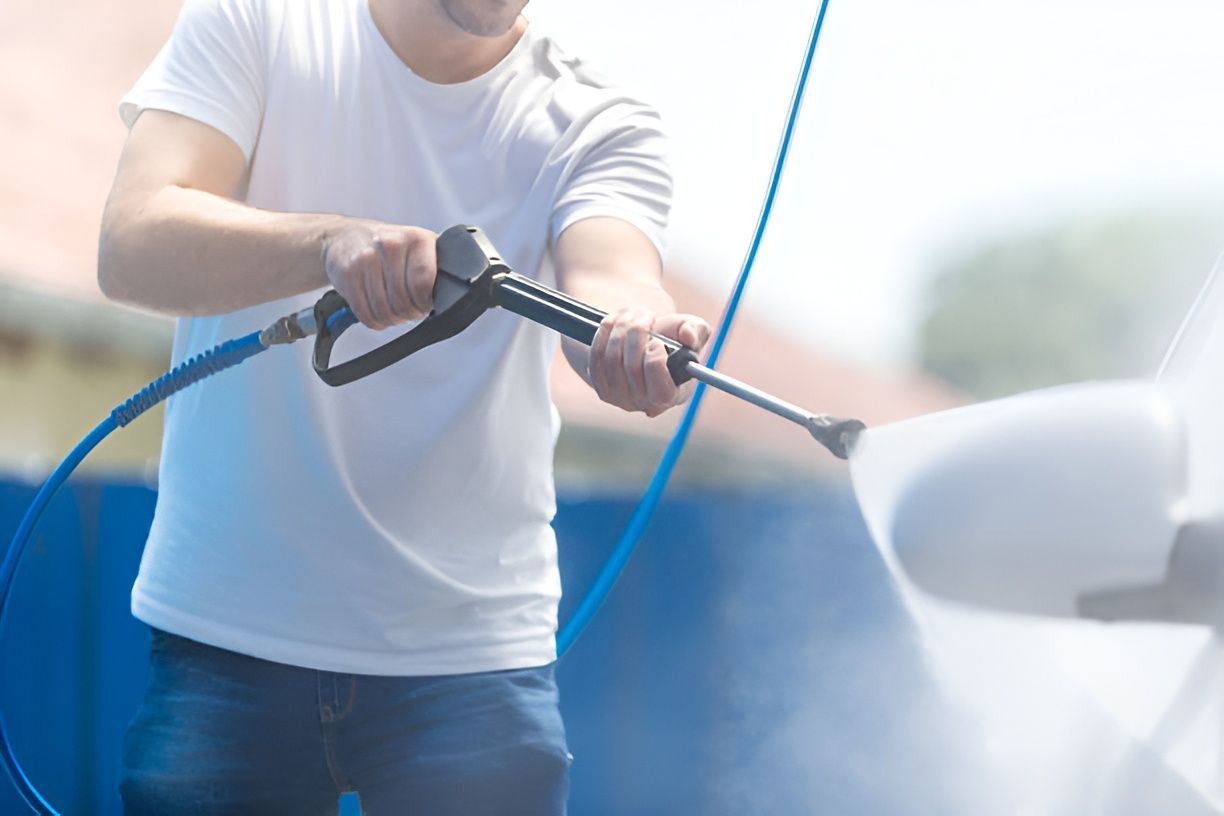
Soft washing uses gentle water pressure (less than 500 PSI) combined with eco-friendly cleaning solutions to effectively remove dirt, algae, and mildew without harming your surfaces.
| Cleaning Method | Pressure Level | Primary Benefit |
|---|---|---|
| High-Pressure Washing | 1500-4000 PSI | Quickly removes grime but risks surface erosion |
| Soft Washing | < 500 PSI | A gentle, deep clean that protects material integrity |
Soft washing’s low pressure and specialized detergents break down organic buildup, rinse away contaminants, and prevent unsightly streaks or damage to the material.
Choosing soft washing is the smart way to get a truly clean surface while ensuring it stays protected for the long haul.
When Should Homeowners and Business Owners Call the Pros Instead of DIY Pressure Washing?
Trying to pressure wash tricky or fragile exteriors yourself often leads to mistakes. You should definitely consider bringing in the experts when any of these situations apply:
- You need to clean roofs, delicate siding, or wood structures, and want to minimize any risk of damage.
- There are electrical fixtures, outdoor outlets, or solar panels on or near the area you need cleaned.
- There’s a concern about water getting behind siding or into roofing underlayment, which could cause hidden leaks.
- Your warranty or insurance policy requires certified cleaning methods.
- You simply want guaranteed results and a free consultation to prevent any potential damage.
When you hire trained professionals, you’re getting the right techniques, specialized equipment, and safety protocols. All of which protect your property and give you peace of mind.
Conclusion
Avoiding those high-pressure missteps on delicate materials is crucial for keeping your home looking its best and maintaining its structural integrity.
By knowing which surfaces are sensitive, understanding the common risks, opting for soft washing, and calling in specialists when needed, you’re safeguarding your investment, especially here in North Georgia’s humid climate.
For reliable and safe
pressure washing in Cumming, trust Atlas Pro Wash GA’s expertise to get the job done safely and effectively, ensuring every shingle, board, and window stays perfectly intact.
